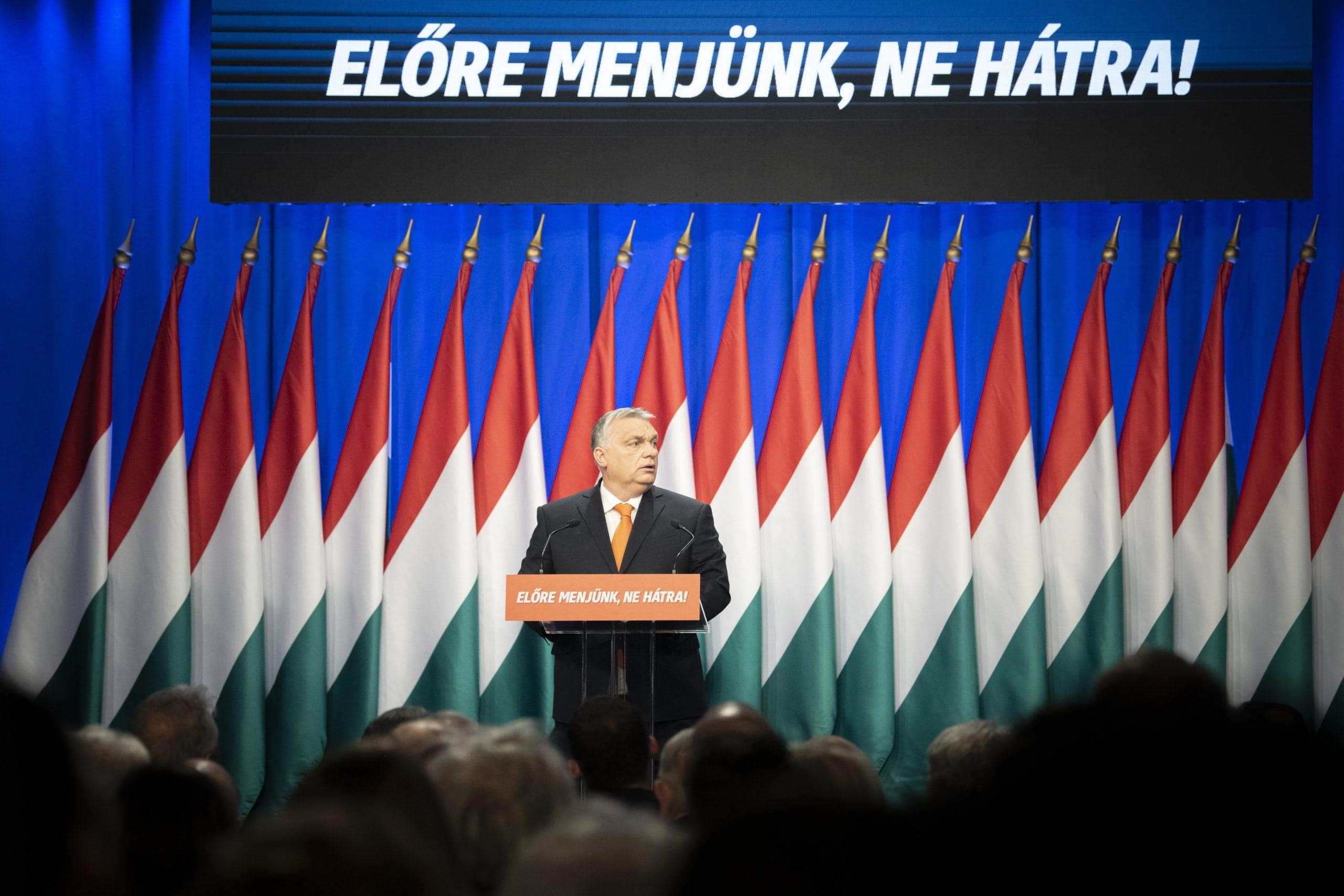
On Saturday, February 12th, Viktor Orbán held his annual state of the nation address in Budapest, which also acted as the official start to his reelection campaign for the general elections on April 3rd.
In his speech, Orbán stressed the achievements of the government in terms of dealing with the pandemic and in respect to social security, health, and the Hungarian economy. He listed a rise of the minimum wage by 20%, a record export performance of €119 billion, and record employment since the end of the Soviet Union—“1 million more than under the Gyurcsány government”—as some of the hallmarks of his government.
Orbán also accused left-wing opposition, especially former Prime Ministers Ferenc Gyurcsány and Gordon Bajnai, of trying to overthrow the government by default, through their opposition to each and every policy. He accused the Left of demanding the lifting of lockdowns when it was appropriate to maintain them and of insisting on locking down when it was right to lift restrictions. According to the prime minister, the Left also failed to vote for the credit moratorium, the increased minimum wage, the family tax rebate, tax relief for workers below the age of 25, and other tax cuts—all of which are recent achievements by the Orbán administration.
On the topic of international politics, Orbán stressed the need for a diplomatic solution to the Russia-Ukraine crisis, referring to his own recent visit to Moscow as a “mission of peace.” He considered the EU strategy to be “flawed” and called potential sanctions against Russia “a dead end.” Without economic cooperation with Russia, Europe would remain “anemic,” and commit the “strategic mistake” of handing China a huge economic advantage. Orbán praised his own model of foreign policy, which draws strength from membership in NATO and the EU, while it maintains balanced political and economic relations with Russia. “Hungary may lack a nuclear-powered icebreaker, but a pickaxe … can be enough to bring about common sense,” said Orbán. At the same time, he stressed the need of “an area of adequate breadth” between Hungary and Russia, thus making Ukraine’s independence a vested Hungarian interest.
On the subject of migration, Orbán pointed out that every day hundreds of people were attempting to force their way into Hungary. Last year, 122,000 made the attempt while more than 12,000 had done so in January of this year alone. He stressed that the border would only be protected “as long as the current government holds power.” Orbán accused “pro-migrant bureaucrats in Brussels” of trying to open Hungary’s borders, which would lead to “our grandchildren crying … if there are any left.”
The conflict with the EU, however, runs deeper than just migration policy. According to the prime minister there are “deep differences between Brussels and Hungary,” starting with the economic policies of the current crisis, in which Hungary successfully relaunched its economy rather than stepping on the brakes. Even deeper divisions run between Brussels and Budapest in the field of family policies, cultural traditions, and the nation state. The referendum on child protection will be held at the same time as the general election, which to Orbán is a reason to celebrate the importance of the family: “The father is a man, the mother is a woman, and our children won’t be left unprotected.” He also confirmed that family benefits will be maintained and even extended, refusing to “give up on the idea of making childbearing a financial positive instead of a financial burden.”
Addressing the ideological differences with the EU, he explained that “we did not just have freedom, we fought for it. … The Cold War was won by the Poles, the Czechs, the Hungarians, the Germans, the Bulgarians, the Romanians, the Estonians, the Latvians, and the Lithuanians,” he said, adding that anti-communism and the national idea “won the Cold War by restoring the nation state.” However, he argued that while the Hungarian constitutional system guarantees the rule of law, Brussels uses “the rule of law” as a “tool to mold us in their own image.” Orbán concluded that “they’re not interested in facts or arguments; they’re fighting a holy war, a jihad of the rule of law.”
Sending a clear message to the EU, he said that “we want to keep the EU together, which is why we have repeatedly made offers of tolerance. We don’t expect them to adopt Hungarian migration policy, family policy, or Hungarian foreign and national policy, but they can’t expect us to adopt their policies either.”
